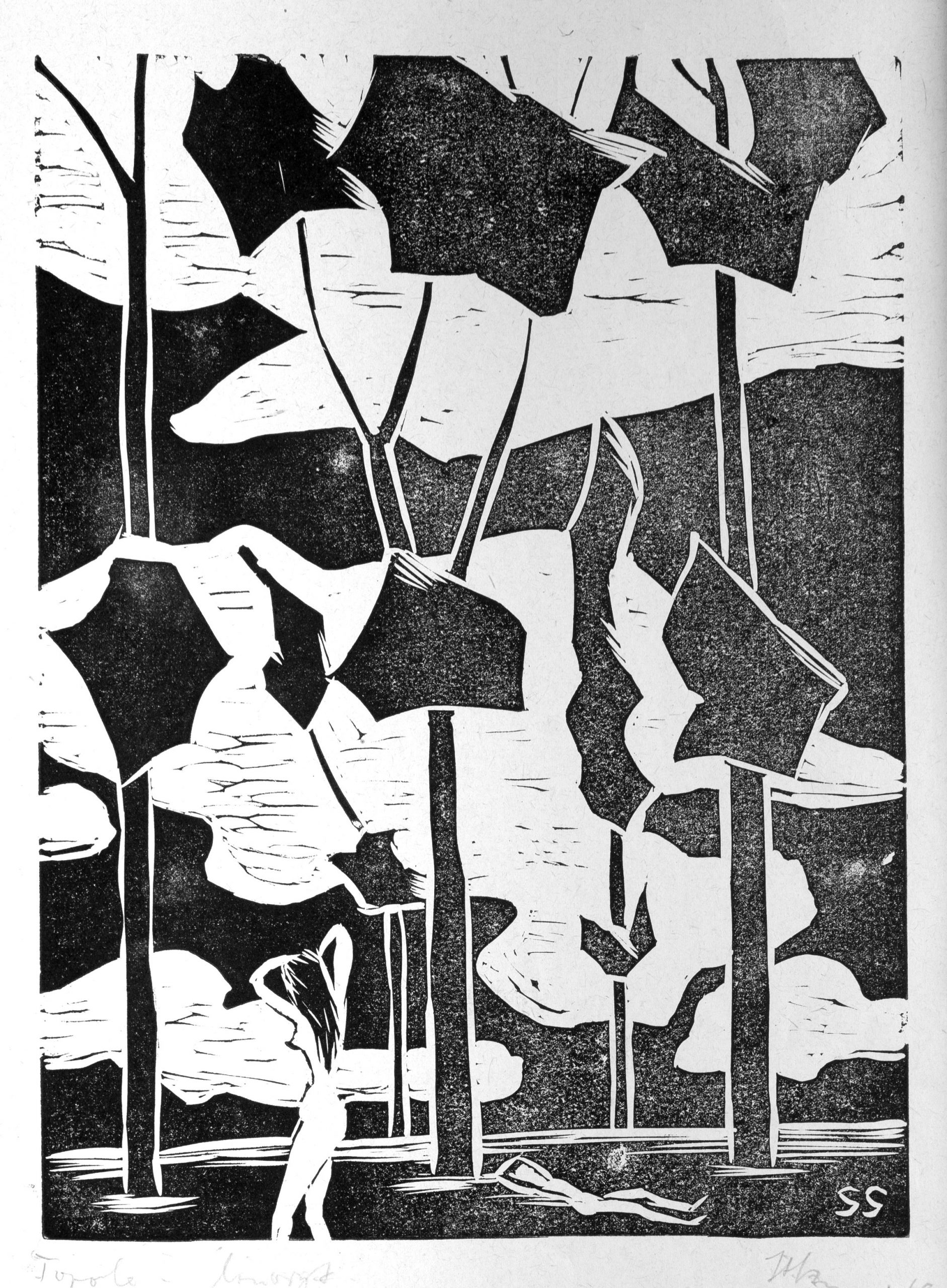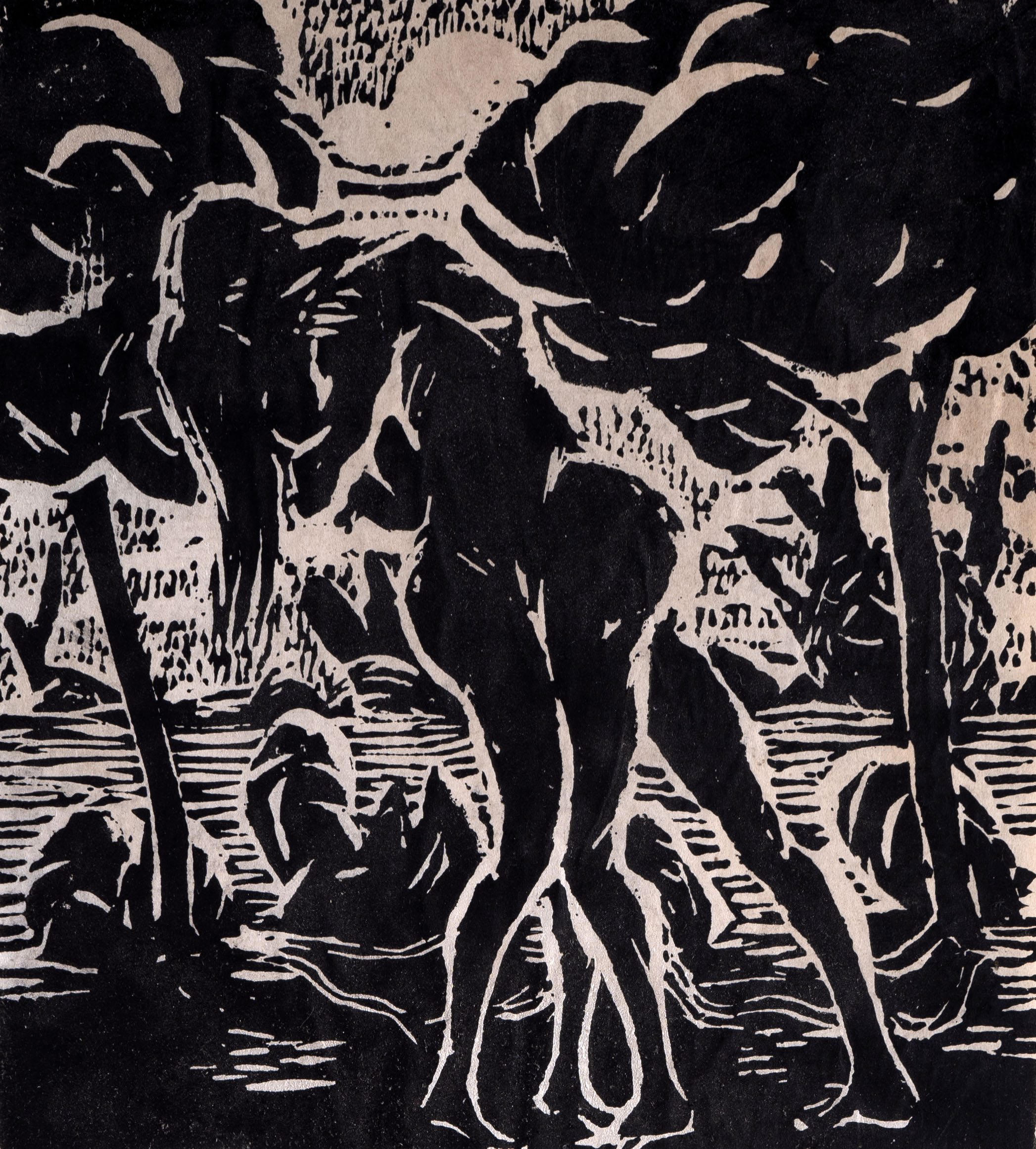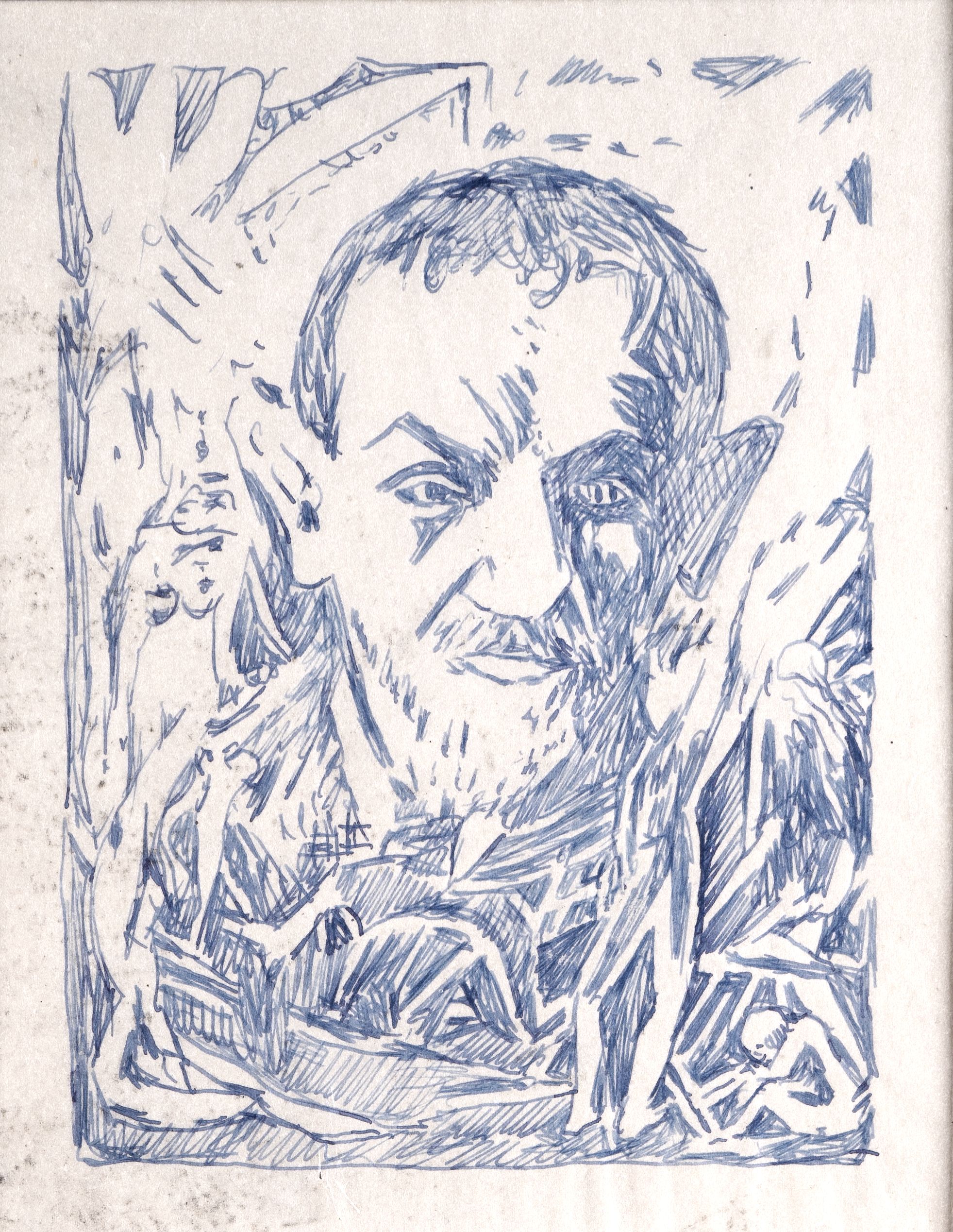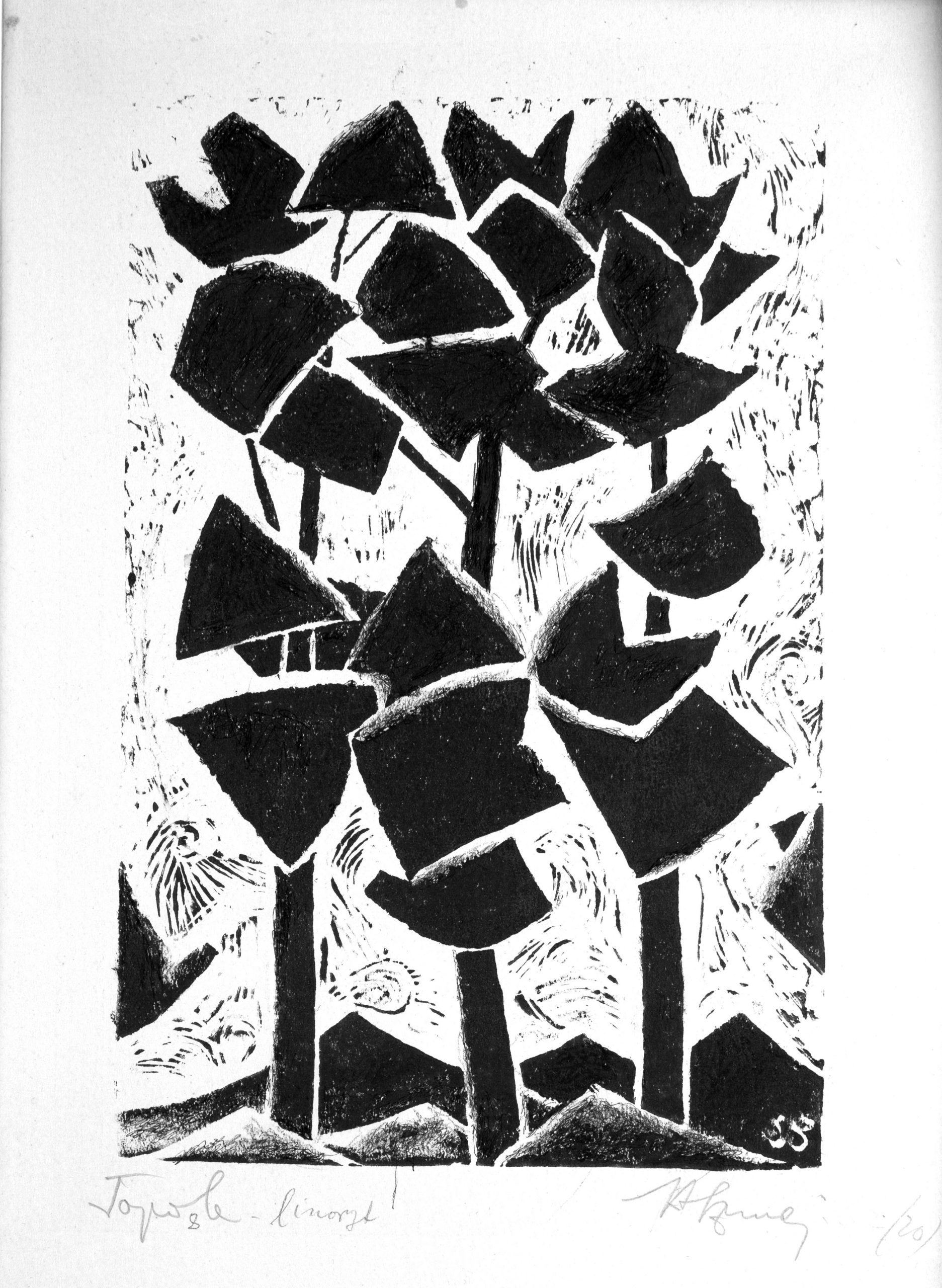Stefan Szmaj
Linocuts 1916-1920
The Reclaimed Independence of Expression
23.03–15.05.19
The exhibition features more than forty of the artist’s early works created between 1916 and 1920, a period of close collaboration with artists associated with the Polish Expressionist flagship magazine Zdrój and the Artists’ Revolt Association in Poznań. Bringing the works of Stefan Szmaj together is yet another initiative to restore this group to its rightful place in the history of Polish modern art and international modernism.
Szmaj’s linocuts reflect his fascination with the work of German Expressionists; members of the Dresden-based Die Brücke and Der Blaue Reiter from Munich.
Relief printing (wood and linocut), popular in such environments, made it possible to create strong black and white contrasts, and to work with larger, dynamically cut planes, which added expressiveness to the compositions.
The exhibition opens with the first linocuts published in the magazine, and the public scandal caused, among other things, by his work The Kiss, presented at the 1st Rebellion Exhibition.
The subject matter explored by Szmaj does not differ from the interests of the artists of the Rebellion and reveals the more local nature of his practice. What we can find here are images of himself and those of ones important to the artist, which more than portraits are a record of his emotional attitude to the depicted characters.
The creative melting pot of the local community of writers and artists, as well as his dramatic experiences at the eastern front, where he was stationed as a military doctor during the Polish-Bolshevik war, had an impact on Szmaja’s artistic maturity and the development of consistent means of expression. This period is concluded with the loosening of relations within the Bunt group, and the artist’s marriage to Maria Irena Hoffman as well as their departure to Gniezno in 1924.
Szmaj was not afraid to explore difficult or scandalous themes, he also turned to religious motifs. His work, like that of other Poznań Expressionists, is an expression of the struggle for the personal, artistic and political freedom as we understand it today, just before, and in the years after Poland regained its independence.
Works
| Status | Title | Year | Technique | Dimensions | |
|---|---|---|---|---|---|
| Loading… |
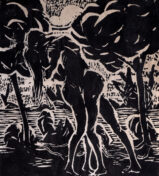
|
The Kiss | linucut/paper | 17.4 × 15.7 cm | |
| Loading… |
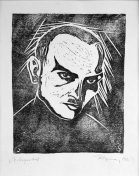
|
Self-portrait | 1916 | Linocut, paper | 16,9 × 13,8 cm |
| Loading… |
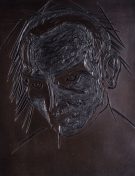
|
Self-portrait | 1916 | Linocut matrix | 16,9 × 13,3 cm |
| Loading… |
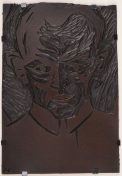
|
Self-portrait III | 1919 | Linocut matrix | 15,1 × 10,2 cm |
| Loading… |
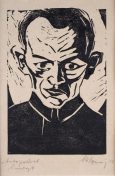
|
Self Portrait III | 1919 | Linocut, paper | 15,2 × 20,3 cm |
| Loading… |
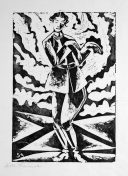
|
Portray of Artur Swinarski | 1920 | Linocut, paper | 22,5 × 15,4 cm |
| Loading… |
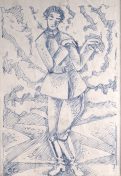
|
Portray of Artur Swinarski | 1920 | Drawing | 22,8 × 15,3 cm |
| Loading… |
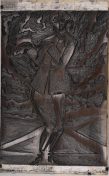
|
Portrait of Artur Swinarski | 1920 | linocut matrix | 22,1 × 15,7 cm |
| Loading… |
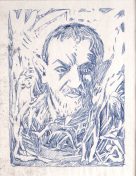
|
Portrait of Stanisław Przybyszewski | 1920 | Drawing: pen, ink, carbon paper | 16 × 11,7 cm |
| Loading… |
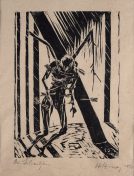
|
St Sebastian | 1917 | Linocut, paper | 18,5 × 13,3 cm |
| Loading… |
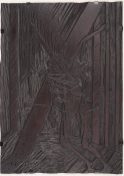
|
St Sebastian | 1917 | Linocut matrix | 18,7 × 13,4 cm |
| Loading… |

|
Prayer to the Sun / Profile | 1917 | Linocut, paper | 25,1 × 18,3 cm |
| Loading… |

|
Prayer to the Sun / Profile | 1917 | Linocut matrix | 25,4 × 18,2 cm |
| Loading… |

|
Prayer to the Sun / Profile | 1917 | Drawing | 24,9 × 20,7 cm |
| Loading… |
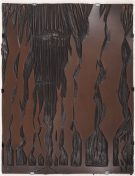
|
Poplars I | 1917 | Linocut matrix | 20,2 × 15,6 cm |
| Loading… |
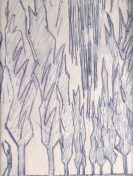
|
Poplars I | 1917 | Drawing | 19,9 × 15,3 cm |
| Loading… |
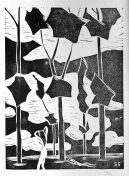
|
Poplars II | 1918 | Linocut,paper | 21,3 × 15,6 cm |
| Loading… |
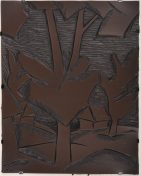
|
Poplars II | 1918 | Linocut matrix | 21,2 × 15,5 cm |
| Loading… |
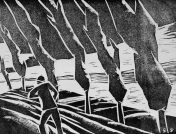
|
Poplars III | 1918 | Linocut, paper | 15,3 × 20,3 cm |
| Loading… |
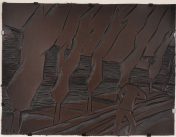
|
Poplars III | 1918 | Linocut matrix | 15,2 × 20 cm |
| Loading… |

|
Poplars III | 1918 | Drawing | 15,1 × 19,9 cm |
| Loading… |

|
Poplars IV | 1918 | Linocut, paper | 21 × 16,6 cm |
| Loading… |
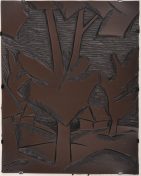
|
Poplars IV | 1918 | Linocut matrix | 21 × 16,5 cm |
| Loading… |
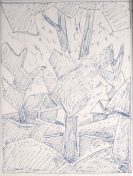
|
Poplars IV | 1918 | Drawing | 21,9 × 16,4 cm |
| Loading… |
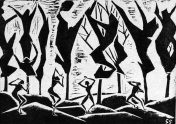
|
Poplars V | 1918 | Linocut, paper | 15 × 21,4 cm |
| Loading… |
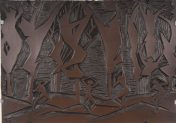
|
Poplars V | 1918 | Linocut matrix | 14,9 × 21,1 cm |
| Loading… |
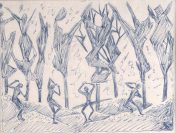
|
Poplars V | 1918 | Drawing | 15,7 × 20,9 cm |
| Loading… |

|
Poplars VII | 1920 | Linocut, paper | 21,2 × 13,7 cm |
| Loading… |
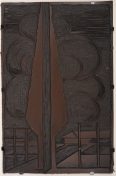
|
Poplars VII | 1920 | Linocut matrix | 21,1 × 13,5 cm |
| Loading… |
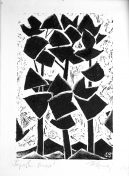
|
Poplars VIII | 1920 | Linocut | 24,7 × 16,2 cm |
| Loading… |
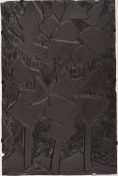
|
Poplars VIII | 1920 | Linocut matrix | 24,8 × 16,3 cm |
| Loading… |
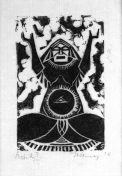
|
Deities I / Foremother | 1920 | Linocut | 13,2 × 8,5 cm |
| Loading… |

|
Deities II / Forefather | 1920 | Linocut | 12,9 × 8,2 cm |
| Loading… |

|
Deities III / Astarte | 1920 | Linocut matrix | 12,9 × 7,9 cm |
| Loading… |
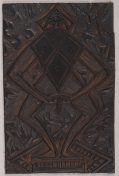
|
Deities IV / Mars | 1920 | Linocut matrix | 13,1 × 8,6 cm |
| Loading… |
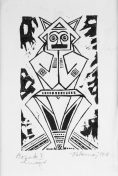
|
Deities V / Krishna / Svetovid | 1918 | Linocut | 13,5 × 7,9 cm |
| Loading… |

|
Deities V / Krishna / Svetovid | 1918 | Linocut matrix | 13,6 × 7,8 cm |
| Loading… |
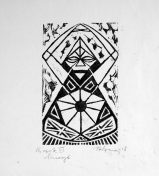
|
Deities VI / Mzimu | 1918 | Linocut | 11,9 × 7,4 cm |
| Loading… |

|
Zoroaster | 1918 | Linocut matrix | 13,3 × 7,9 cm |
| Loading… |

|
Buddha | 1918 | Linocut matrix | 12,7 × 9,3 cm |
| Loading… |
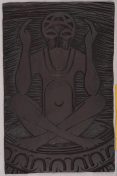
|
Muhammad | linocut matrix | 13 × 8,3 cm | |
| Loading… |

|
Annunciation of the Angel | Linocut matrix | 23,7 × 13,2 cm |
